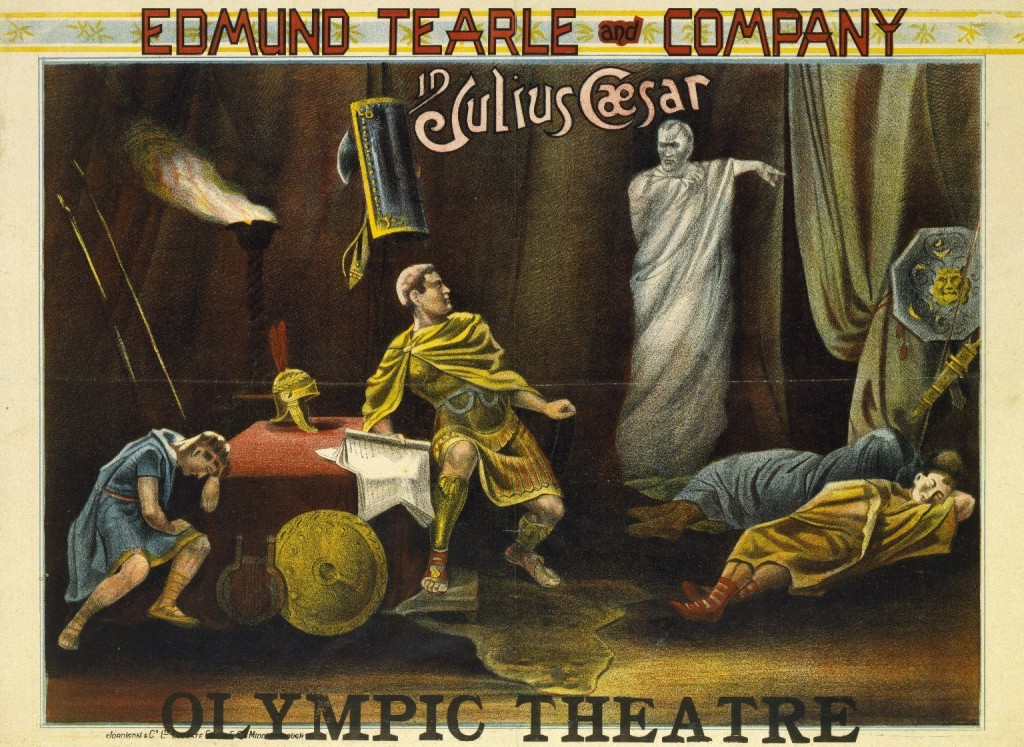The State of Things
I now know things I never knew.
And what I know I never knew
I didn’t know. And now I know
things I don’t want to know.
There’s no forgetting what I know now.
There’s no way to know how much
needs to be known. All I know now:
I don’t know & don’t want to know.
What’s to be done with what I now know?
I can’t tell you. You can’t know, not now,
not ever: you should’ve known by now.
Sorry to say, but now you know.
How do I know? It’s now my job to know.
And now I can’t ever afford not to know.
To know what one wants, what one wants
to know . . . I thought I did. But now I don’t know.
That’s what got me here, to the now, in the know.
And will not not knowing never end then
with what, ultimately, I don’t know?
I don’t know. That I know, that I know.
—for SD
2004
How was it I felt nothing
that last Ides of March
in the busy downtown square
of Largo Argentina
where Caesar felt the determined
point of conspirators?
All across Europe,
the morning papers read,
five minutes of silence
held for the Spanish dead:
that noon, the buses shifted
down and motorini slowed,
trailing fashionable scarves
flapping like standards on a field.
Why was it not quiet enough
for a personal public grief,
though Rome stood dutifully
observing more than itself?
The handsome Senegalese
stopped selling for the moment
their poetry against apartheid
while carabinieri hovered by
Pompey’s portico latrine;
used exclusively by wild cats,
they spray the travertine. Goddess
of Fortune of the Present Day,
your temple is the rubble
venerated by Il Duce;
and the tired Communist Party
still prints the most colorful posters
competing with the Lotto sign
yellowing Berlusconi’s eye.
A gypsy family that sleeps
three generations outside
split sandwiches, played cards
and waited to ask for change;
and the Bengal tiger stitched
on the father’s leather back
stared down the promising awning
of the Chinese restaurant.
The warm sun reached us faithfully
through oceans of cool air,
the war had never ceased,
and all the art of the Renaissance
seemed part of this being fucked.
Then five minutes were up
and we heard the children shout
from across the ancient square
and release their bright balloons
into the afternoon air—
red and blue and gold
they rose above all things
ruined and not yet ruined,
perfected in themselves
disappearing from the world,
manmade yet natural shapes,
fresh as the painted birds
fading from Etruscan tombs
escaping the hunter’s net
also depicted there
in the living necropolis.
Bocca della Verità
See that crack at the corner of my eye?
—a track running like a tear blown back
by an unforgiving wind
gathering force from the mind’s
black accumulations.
It’s for you, that crack,
those jealousies and false heroics
made meaningless in the face of certainties; my face,
you see it
emerging from the stone, your vain
denials, the theatrics of home,
the opera for which you’ve trained your voice,
its capriciousness, its talent for carrying
opportunity’s tune; it’s for giving in
to anger, the pleasure you feel
drawing bristles over a rash,
for your cheapest satisfactions—when you cut
someone off, miss another call,
forget yourself, when you hold yourself
back from an easy true compliment and jump
to take offense, all the smallest murders
you commit when you close the door,
turn away, draw shades against the sun;
for not quite hearing or remembering, for your thoughtfulness
pointing to another’s lack,
for making the right point
at the wrong time, for falling out of touch, touching
what would rather be left alone,
for leaving well enough alone
that calls for your intervention—
So the single tear digs
its groove, knowing, dispassionate,
running from the corner of my eye
to the rim of my perfect radius,
a medallion, a coin
you cannot spend, bank,
or wear around your neck.
Once a mere drain cover,
I’ve risen up—your applause
is not a factor
—my mouth opening
for your hand, that takes what is
not given, that gives
when it should grasp
and drops what it must carry.
Billions served, but it is yours
I hunger for. Place it inside and see
if I don’t return some night
to chew it off
with incisors hidden from the casual
glance into such caverns
of insignificance;
how you file them so keenly
I can taste it even now, the plum
lie inside your pie.
“The Figure of a Man Being Swallowed by a Fish”
is not a man being swallowed by a fish
with eyes like eight point throwing stars
it’s a man being swallowed by a war
a man being taken into the mouth of a woman
or being swallowed by his work
it’s a man traveling far inside a book
a man being swallowed up in smoke
he swallows the smoke, that blends around him like a thought
it’s a man being swallowed by a sound
he shapes it so he lives inside a song
of a man being swallowed by his kin, his skin
a man being swallowed by the State
(Leviathan in 1948)
it’s a man being swallowed by another man
literally, eaten as a pathway to god
it’s a man being swallowed by a sight
he cannot reach, cannot touch, cannot trace
it’s a man who won’t recognize his face
who can’t fit the parts, or find the place
it’s a man in triumph over death
who laughs and beats the dust from his clothes
a man tasting dust inside the laugh
it’s a man who listens to the clock
a man with nothing to exchange
a rude man, his twin he leaves behind
it’s a man who wants to be a bride
a man being swallowed by his fault
with something old to show and new to hide
it’s a man who tries to haul the rope
a man who stooping can’t provide
a man who can’t forget his name
it’s a man who doesn’t know his worth
it’s a man being swallowed by his wrath
his youth, yield, luck, the law, his fear, the fog, his fame
it’s a man being swallowed by a coat
his father’s coat, he smells of the fit
a man being swallowed by his vows
it’s a man softly squeezing for the vein
he never finds it, he’s minding the road
it’s a man being swallowed by a room
in which he finds a man being swallowed by a fish
it’s a man who thinks what’s in a man
who exits into night at closing time
the figure of a man being swallowed by a fish.
“2004” and “Bocca della Verità” reprinted from The Book of Giants, University of Chicago Press, 2006. “‘The Figure of a Man Being Swallowed by a Fish'” reprinted from The Figure of a Man Being Swallowed by a Fish, University of Chicago Press, 2013. With permission from the author.
Joshua Weiner is the author of three books of poems: The Figure of a Man Being Swallowed by a Fish (2013), From the Book of Giants (2006), and The World’s Room (2001). He is the editor of a book of essays, At the Barriers: On the Poetry of Thom Gunn (2009, all books published by the University of Chicago Press), and the poetry editor at Tikkun magazine. He is the recipient of a Whiting Writers’ Award, the Rome Prize from the American Academy of Arts and Letters, and a 2014 fellowship from the Guggenheim Memorial Foundation, among others. A professor of English at the University of Maryland, he lives with his family in Washington DC. To read more by this author: DC Places Issue, Summer 2006; Five Poems, Summer 2007.

